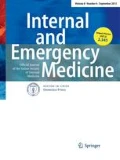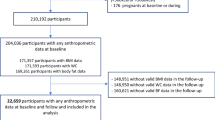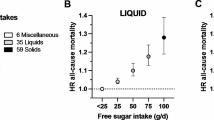Abstract
Soft drinks and sugar-sweetened beverages have been targeted as one of the primary culprits in the escalating rates of obesity and diabetes and reduction of added sugars is considered between the goals to achieve in order to promote cardiovascular health and to reduce deaths from cardiovascular causes. Many reliable mechanisms, such as dislypidemia, inflammation and enhanced oxidative stress, have been proposed to support a causal link between sugar sweetened beverages intake and cardiovascular risk, but the ultimate underlying pathways remain to be determined in adequately designed studies. Furthermore, while epidemiological evidence strongly supports an association between sugar sweetened beverages consumption and obesity, type 2 diabetes mellitus or cardiovascular risk, incongruous findings yielded by clinical trials, or formal meta-analyses make difficult to draw firm conclusions in this regard. Further and rigorous studies are needed to better understand the role of sugar sweetened beverages in the etiology of cardiovascular diseases and to better address the warnings and decisions of regulatory authorities on public health worldwide.



Similar content being viewed by others
References
Pincock S (2006) Paul Zimmet: fighting the “diabesity” pandemic. Lancet 368:1643
Sowers JR (2003) Obesity as a cardiovascular risk factor. Am J Med 115 (Suppl) 8A:37S–41S
Johnson RK, Appel LJ, Brands M, Howard BV, Lefevre M, Lustig RH, Sacks F, Steffen LM, Wylie-Rosett J, on behalf of the American Heart Association Nutrition Committee of the Council on Nutrition, Physical Activity, and Metabolism and the Council on Epidemiology and Prevention (2009) Dietary sugars intake and cardiovascular health: a scientific statement from the American Heart Association. Circulation 120:1011–1020
Davì G, Patrono C (2007) Platelet activation and atherothrombosis. N Engl J Med 357:2482–2494
Ferroni P, Basili S, Falco A, Davì G (2004) Inflammation, insulin resistance and obesity. Curr Atheroscler Rep 6:424–431
Kato H, Kashiwagi H, Shiraga M, Tadokoro S, Kamae T, Ujiie H, Honda S, Miyata S, Ijiri Y, Yamamoto J, Maeda N, Funahashi T, Kurata Y, Shimomura I, Tomiyama Y, Kanakura Y (2006) Adiponectin acts as an endogenous antithrombotic factor. Arterioscler Thromb Vasc Biol 26:224–230
Meerarani P, Badimon JJ, Zias E, Fuster V, Moreno PR (2006) Metabolic syndrome and diabetic atherothrombosis: implications in vascular complications. Curr Mol Med 6:501–514
Stanhope KL, Schwarz JM, Keim NL, Griffen SC, Bremer AA, Graham JL, Hatcher B, Cox CL, Dyachenko A, Zhang W, McGahan JP, Seibert A, Krauss RM, Chiu S, Schaefer EJ, Ai M, Otokozawa S, Nakajima K, Nakano T, Beysen C, Hellerstein MK, Berglund L, Havel PJ (2009) Consuming fructose-sweetened, not glucose-sweetened, beverages increases visceral adiposity and lipids and decreases insulin sensitivity in overweight/obese humans. J Clin Invest 119:1322–1334
Anfossi G, Trovati M (2006) Pathophysiology of platelet resistance to anti-aggregating agents in insulin resistance and type 2 diabetes: implications for anti-aggregating therapy. Cardiovasc Hematol Agents Med Chem 4:111–128
Romano M, Guagnano MT, Pacini G, Vigneri S, Falco A, Marinopiccoli M, Manigrasso MR, Basili S, Davì G (2003) Association of inflammation markers with impaired insulin sensitivity and coagulative activation in obese healthy women. J Clin Endocrinol Metab 88:5321–5326
Davì G, Guagnano MT, Ciabattoni G, Basili S, Falco A, Marinopiccoli M, Nutini M, Sensi S, Patrono C (2002) Platelet activation in obese women: role of inflammation and oxidant stress. JAMA 288:2008–2014
Basili S, Pacini G, Guagnano MT, Manigrasso MR, Santilli F, Pettinella C, Ciabattoni G, Patrono C, Davì G (2006) Insulin resistance as a determinant of platelet activation in obese women. J Am Coll Cardiol 48:2531–2538
Russo I, Traversa M, Bonomo K, De Salve A, Mattiello L, Del Mese P, Doronzo G, Cavalot F, Trovati M, Anfossi G (2010) In central obesity, weight loss restores platelet sensitivity to nitric oxide and prostacyclin. Obesity 18:788–797
Christiansen T, Paulsen SK, Bruun JM, Ploug T, Pedersen SB, Richelsen B (2010) Diet-induced weight loss and exercise alone and in combination enhance the expression of adiponectin receptors in adipose tissue and skeletal muscle but only diet-induced weight loss enhanced circulating adiponectin. J Clin Endocrinol Metab 95:911–919
Klempel MC, Varady KA (2011) Reliability of leptin, but not adiponectin, as a biomarker for diet-induced weight loss in humans. Nutr Rev 69:145–154
Vazzana N, Santilli F, Cuccurullo C, Davì G (2009) Soluble forms of RAGE in internal medicine. Intern Emerg Med 4:389–401
Devangelio E, Santilli F, Formoso G, Ferroni P, Bucciarelli L, Michetti N, Clissa C, Ciabattoni G, Consoli A, Davì G (2007) Soluble RAGE in type 2 diabetes: association with oxidative stress. Free Radic Biol Med 43:511–518
Davì G, Ciabattoni G, Consoli A, Mezzetti A, Falco A, Santarone S, Pennese E, Vitacolonna E, Bucciarelli T, Costantini F, Capani F, Patrono C (1999) In vivo formation of 8-iso-prostaglandin F2alpha and platelet activation in diabetes mellitus: effects of improved metabolic control and vitamin E supplementation. Circulation 99:224–229
Davì G, Catalano I, Averna M, Notarbartolo A, Strano A, Ciabattoni G, Patrono C (1990) Thromboxane biosynthesis and platelet function in type II diabetes mellitus. N Engl J Med 322:1769–1774
Santilli F, Davì G, Consoli A, Cipollone F, Mezzetti A, Falco A, Taraborelli T, Devangelio E, Ciabattoni G, Basili S, Patrono C (2006) Thromboxane-dependent CD40 ligand release in type 2 diabetes mellitus. J Am Coll Cardiol 47:391–397
Tappy L, Le KM (2010) Metabolic effects of fructose and the worldwide increase in obesity. Physiol Rev 90:23–46
Brownell KD, Farley T, Willett WC, Popkin BM, Chaloupka FJ, Thompson JW, Ludwig DS (2009) The public health and economic benefits of taxing sugar-sweetened beverages. N Engl J Med 361:1599–1605
Reedy J, Krebs-Smith SM (2010) Dietary sources of energy, solid fats, and added sugars among children and adolescents in the United States. J Am Diet Assoc 110:1477–1484
Marriott BP, Cole N, Lee E (2009) National estimates of dietary fructose intake increased from 1977 to 2004 in the United States. J Nutr 139:1228–1235
Stanhope KL, Griffen SC, Bair BR, Swarbrick MM, Keim NL, Havel PJ (2008) Twenty-four-hour endocrine and metabolic profiles following consumption of high-fructose corn syrup-, sucrose-, fructose-, and glucose sweetened beverages with meals. Am J Clin Nutr 87:1194–1203
Ranjit N, Evans MH, Byrd-Williams C, Evans AE, Hoelscher DM (2010) Dietary and activity correlates of sugar-sweetened beverage consumption among adolescents. Pediatrics 126:e754–e761
Lloyd-Jones DM, Hong Y, Labarthe D, Mozaffarian D, Appel LJ, Van Horn L, Greenlund K, Daniels S, Nichol G, Tomaselli GF, Arnett DK, Fonarow GC, Ho PM, Lauer MS, Masoudi FA, Robertson RM, Roger V, Schwamm LH, Sorlie P, Yancy CW, Rosamond WD et al (2020) on behalf of the American Heart Association Strategic Planning Task Force and Statistics Committee(2010) Defining, Setting National Goals for Cardiovascular Health Promotion, Disease Reduction The American Heart Association’s Strategic Impact Goal Through 2020 and Beyond. Circulation 121:586–613
Schulze MB, Manson JE, Ludwig DS, Colditz GA, Stampfer MJ, Willett WC, Hu FB (2004) Sugar-sweetened beverages, weight gain, and incidence of type 2 diabetes in young and middle-aged women. JAMA 292:927–934
Malik VS, Popkin BM, Bray GA, Després JP, Willett WC, Hu FB (2010) Sugar-sweetened beverages and risk of metabolic syndrome and type 2 diabetes: a meta-analysis. Diabetes Care 33:2477–2483
Dhingra R, Sullivan L, Jacques PF, Wang TJ, Fox CS, Meigs JB, D’Agostino RB, Gaziano JM, Vasan RS (2007) Soft drink consumption and risk of developing cardiometabolic risk factors and the metabolic syndrome in middle-aged adults in the community. Circulation 116:480–488
Welsh JA, Sharma A, Cunningham SA, Vos MB (2011) Consumption of added sugars and indicators of cardiovascular disease risk among US adolescents. Circulation 1233:249–257
Fung TT, Malik V, Rexrode KM, Manson JE, Willett WC, Hu FB (2009) Sweetened beverage consumption and risk of coronary heart disease in women. Am J Clin Nutr 89:1037–1042
Vartanian LR, Schwartz MB, Brownell KD (2007) Effects of soft drink consumption on nutrition and health: a systematic review and meta-analysis. Am J Public Health 97:667–675
Nissinen K, Mikkila V, Mannisto S, Lahti-Koski M, Rasanen L, Viikari J, Raitakari OT (2009) Sweets and sugar-sweetened soft drink intake in childhood in relation to adult BMI and overweight: the Cardiovascular Risk in Young Finns Study. Public Health Nutr 12:2018–2026
Mattes RD, Shikany JM, Kaiser KA, Allison DB (2010) Nutritively sweetened beverage consumption and body weight: a systematic review and meta-analysis of randomized experiments. Obes Rev. doi: 10.1111/j.1467-789X.2010.00755.x [Epub ahead of print]
Perichart-Pereira O, Balas-Nakash M, Rodríguez-Cano A, Muñoz-Manrique C, Monge-Urrea A, Vadillo-Ortega F (2010) Correlates of dietary energy sources with cardiovascular disease risk markers in Mexican school-age children. J Am Diet Assoc 110:253–260
Chen L, Caballero B, Mitchell DC, Loria C, Lin PH, Champagne CM, Elmer PJ, Ard JD, Batch BC, Anderson CA, Appel LJ (2010) Reducing consumption of sugar-sweetened beverages is associated with reduced blood pressure: a prospective study among United States adults. Circulation 121:2398–2406
Malik VS, Popkin BM, Bray GA, Despres JP, Hu FB (2010) Sugar-sweetened beverages, obesity, type 2 diabetes mellitus, and cardiovascular disease risk. Circulation 121:1356–1364
Raben A, Vasilaras TH, Moller AC, Astrup A (2002) Sucrose compared with artificial sweeteners: different effects on ad libitum food intake and body weight after 10 wk of supplementation in overweight subjects. Am J Clin Nutr 76:721–729
DiMeglio DP, Mattes RD (2000) Liquid versus solid carbohydrate: effects on food intake and body weight. Int J Obes Relat Metab Disord 24:794–800
Kavey RE (2010) How sweet it is: sugar-sweetened beverage consumption, obesity, and cardiovascular risk in childhood. J Am Diet Assoc 110:1456–1460
Tappy L, Le KA, Tran C, Paquot N (2010) Fructose and metabolic diseases: new findings, new questions. Nutrition 26:1044–1049
Feig DI, Kang DH, Johnson RJ (2008) Uric acid and cardiovascular risk. N Engl J Med 359:1811–1821
Liu S, Manson JE, Buring JE, Stampfer MJ, Willett WC, Ridker PM (2002) Relation between a diet with a high glycemic load and plasma concentrations of high-sensitivity C-reactive protein in middle-aged women. Am J Clin Nutr 75:492–498
Uribarri J, Cai W, Sandu O, Peppa M, Goldberg T, Vlassara H (2005) Diet-derived advanced glycation end products are major contributors to the body’s AGE pool and induce inflammation in healthy subjects. Ann N Y Acad Sci 1043:461–466
Allison DB, Mattes RD (2009) Nutritively sweetened beverage consumption and obesity: the need for solid evidence on a fluid issue. JAMA 301:318–320
Wang YC, Bleich SN, Gortmaker SL (2008) Increasing caloric contribution from sugar-sweetened beverages and 100% fruit juices among US children and adolescents, 1988–2004. Pediatrics 121:e1604–e1614
Haerens L, Craeynest M, Deforche B, Maes L, Cardon G, De Bourdeaudhuij I (2008) The contribution of psychosocial and home environmental factors in explaining eating behaviours in adolescents. Eur J Clin Nutr 62:51–59
Chen L, Appel LJ, Loria C, Lin PH, Champagne CM, Elmer PJ, Ard JD, Mitchell D, Batch BC, Svetkey LP, Caballero B (2009) Reduction in consumption of sugar-sweetened beverages is associated with weight loss: the PREMIER trial. Am J Clin Nutr 89:1299–1306
Ochoa MC, Moreno-Aliaga MJ, Martínez-González MA, Martínez JA, Marti A et al (2007) GENOI Members. Predictor factors for childhood obesity in a Spanish case-control study. Nutrition 23:379–384
Conflict of interest
None.
Author information
Authors and Affiliations
Corresponding author
Rights and permissions
About this article
Cite this article
Mucci, L., Santilli, F., Cuccurullo, C. et al. Cardiovascular risk and dietary sugar intake: is the link so sweet?. Intern Emerg Med 7, 313–322 (2012). https://doi.org/10.1007/s11739-011-0606-7
Received:
Accepted:
Published:
Issue Date:
DOI: https://doi.org/10.1007/s11739-011-0606-7




